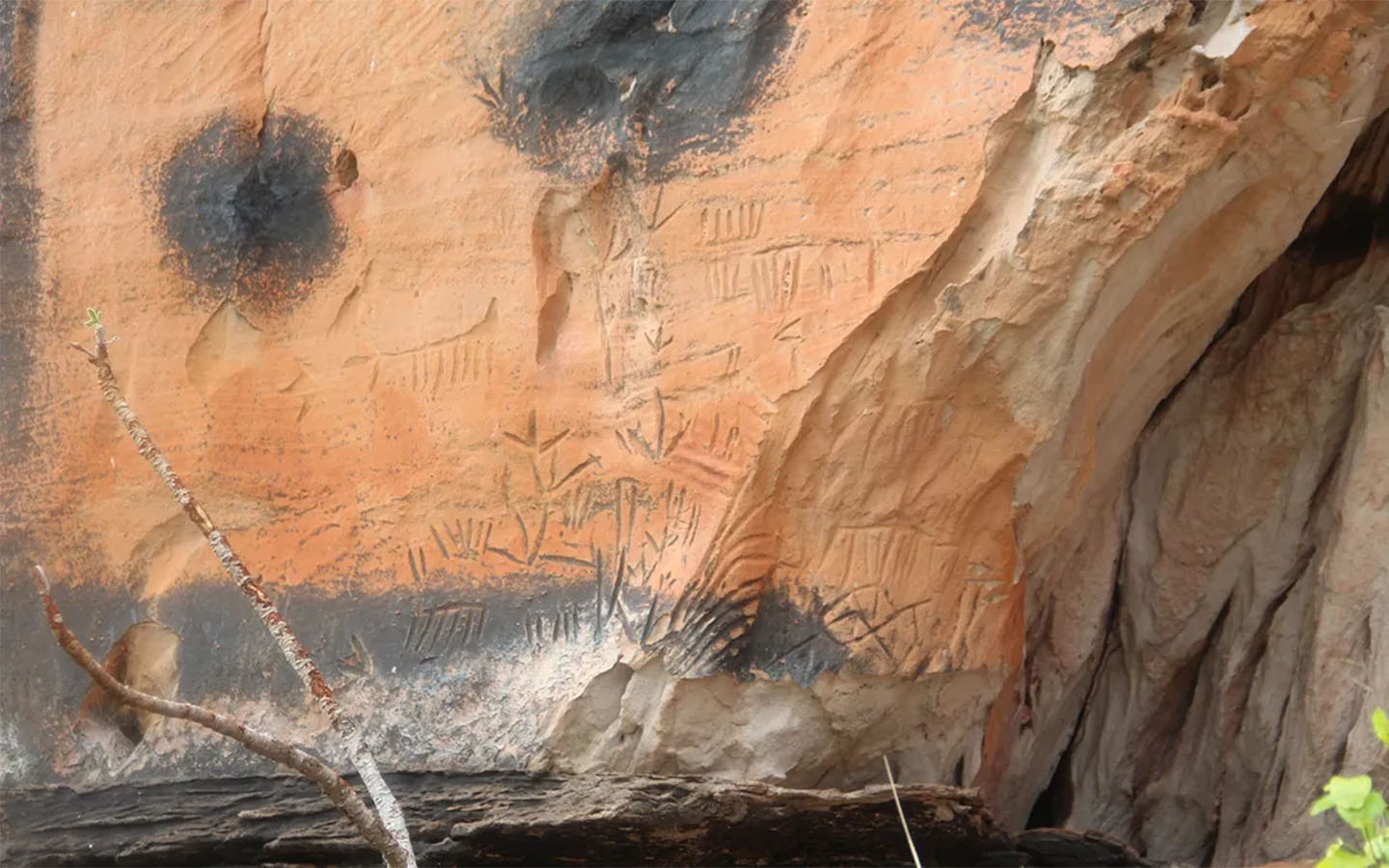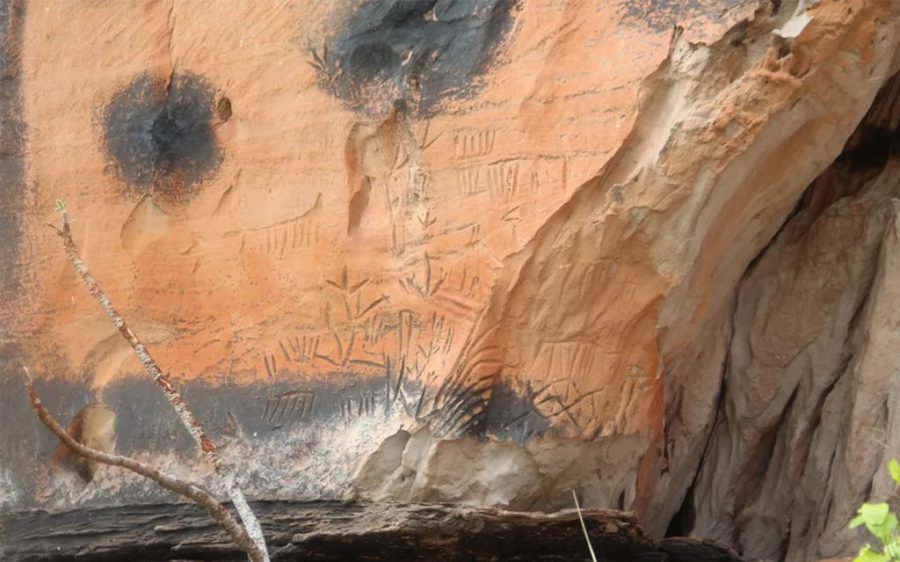Brazilian archaeologists have uncovered a treasure trove of 2,000-year-old rock carvings in Jalapão State Park, in the central state of Tocantins in Brazil.
Over the course of three expeditions made between 2022 and 2023, researchers from Brazil’s National Institute of Historic and Artistic Heritage (known by its Portuguese initials IPHAN) identified 16 pre-colonial archaeological sites. The proximity of the sites, all located on cliffs close to each other, “suggests a possible connection between the sites”, lead archaeologist Rômulo Macêdo told Live Science.
Among the engravings are depictions of human footprints, celestial bodies, and representations of animals like deer and wild pigs. The recurrence of symbols across the different sites supports a connection, “demonstrating that the creators of the rock records, especially the engravings, shared the same belief system,” Macêdo told Newsweek.
[See more: Census reveals 1.69 million indigenous people in Brazil]
The engraved symbols were created by wearing out rocks, likely using pointed stones and pieces of wood. The IPHAN team also discovered a handful of red paintings at some of the sites, which likely were produced by another cultural group and predate the two-millennia-old engravings. The red pigment would probably have been produced with a mix of pulverised iron minerals and animal or vegetable fat, and applied with fingers or sticks.
Early ceramic artefacts and stone tools found at the Jalapão sites, which may have been important items for producing this art, make the find “rare and important”, according to Marcos Zimmerman, a Tocantins-based archaeology professor who was not involved in the recent findings. Previously only stone artefacts had been recovered from the pre-colonial indigenous peoples of Jalapão.
Humans have lived in the region for around 12,000 years, likely drawn by the rich biodiversity of the Cerrado savanna. A desire to convert these peoples to Christianity brought Portuguese Jesuit missionaries to what is now Tocantins around 1625, making the end of the pre-colonial period.






